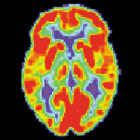
Wealth of Research from Center for Juvenile Justice Reform
|
Georgetown University's Center for Juvenile Justice Reform, led by Director Shay Bilchik, has published a number of research studies that tackle a wide variety of juvenile justice issues. We've highlighted a few of the best below. Be sure to check out the Center's website for many more resources. Improving the Effectiveness of Juvenile Justice Programs: A New Perspective on Evidence-Based Practice
Addressing the Unmet Educational Needs of Children and Youth in the Juvenile Justice and Child Welfare Systems
Supporting Youth In Transition to Adulthood: Lessons Learned from Child Welfare and Juvenile Justice
Racial and Ethnic Disparity and Disproportionality in Child Welfare and Juvenile Justice: A Compendium
Bridging Two Worlds: Youth Involved in the Child Welfare and Juvenile Justice Systems, A Policy Guide for Improving Outcomes





